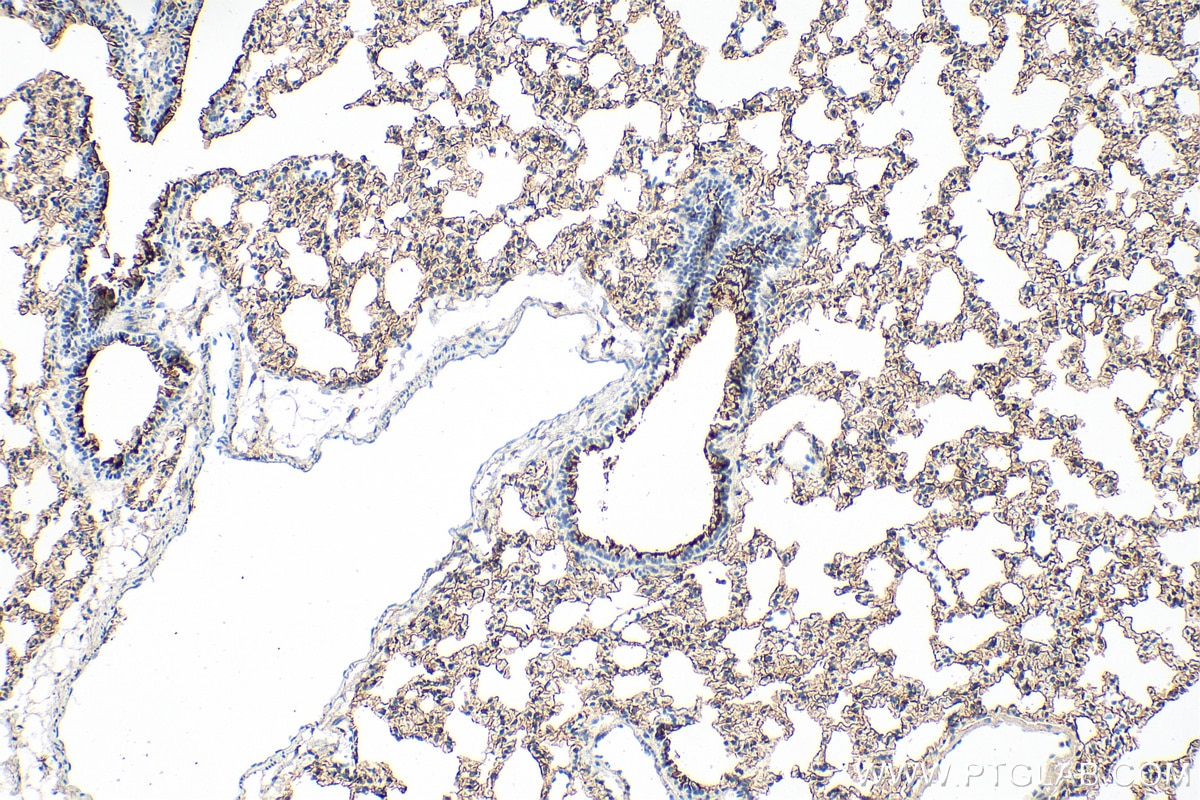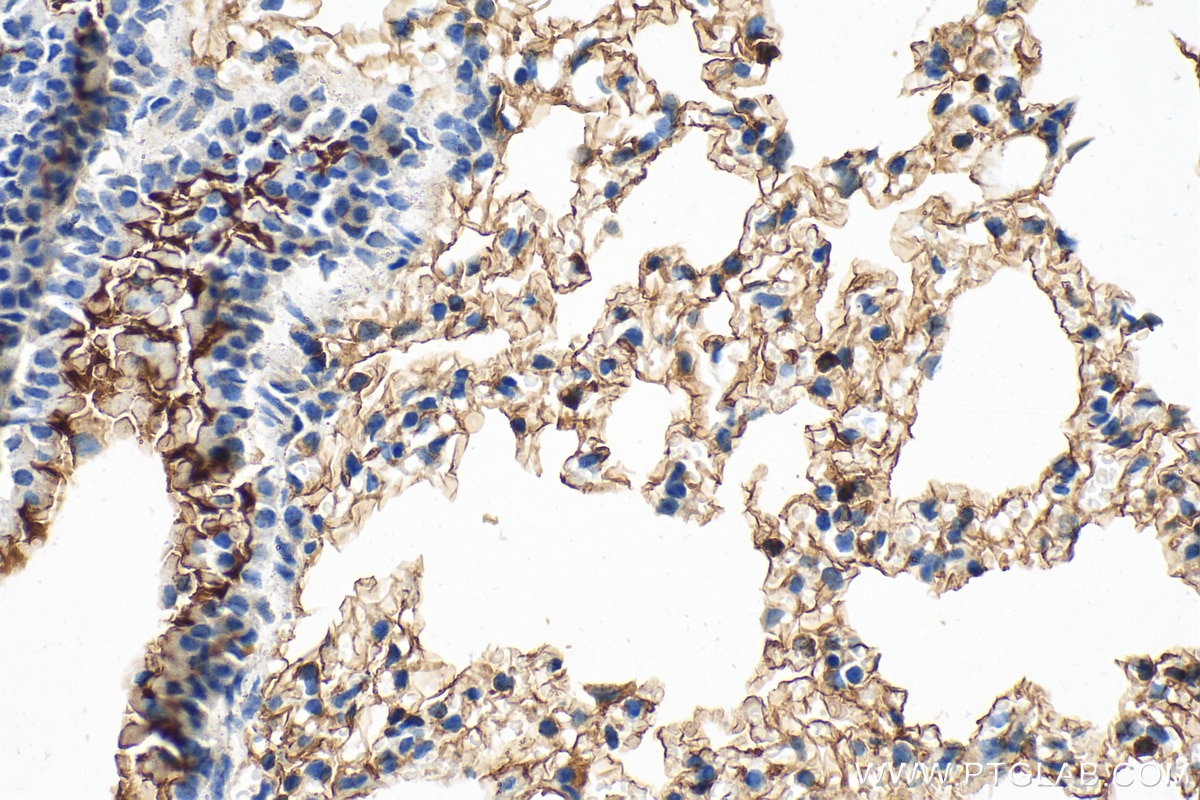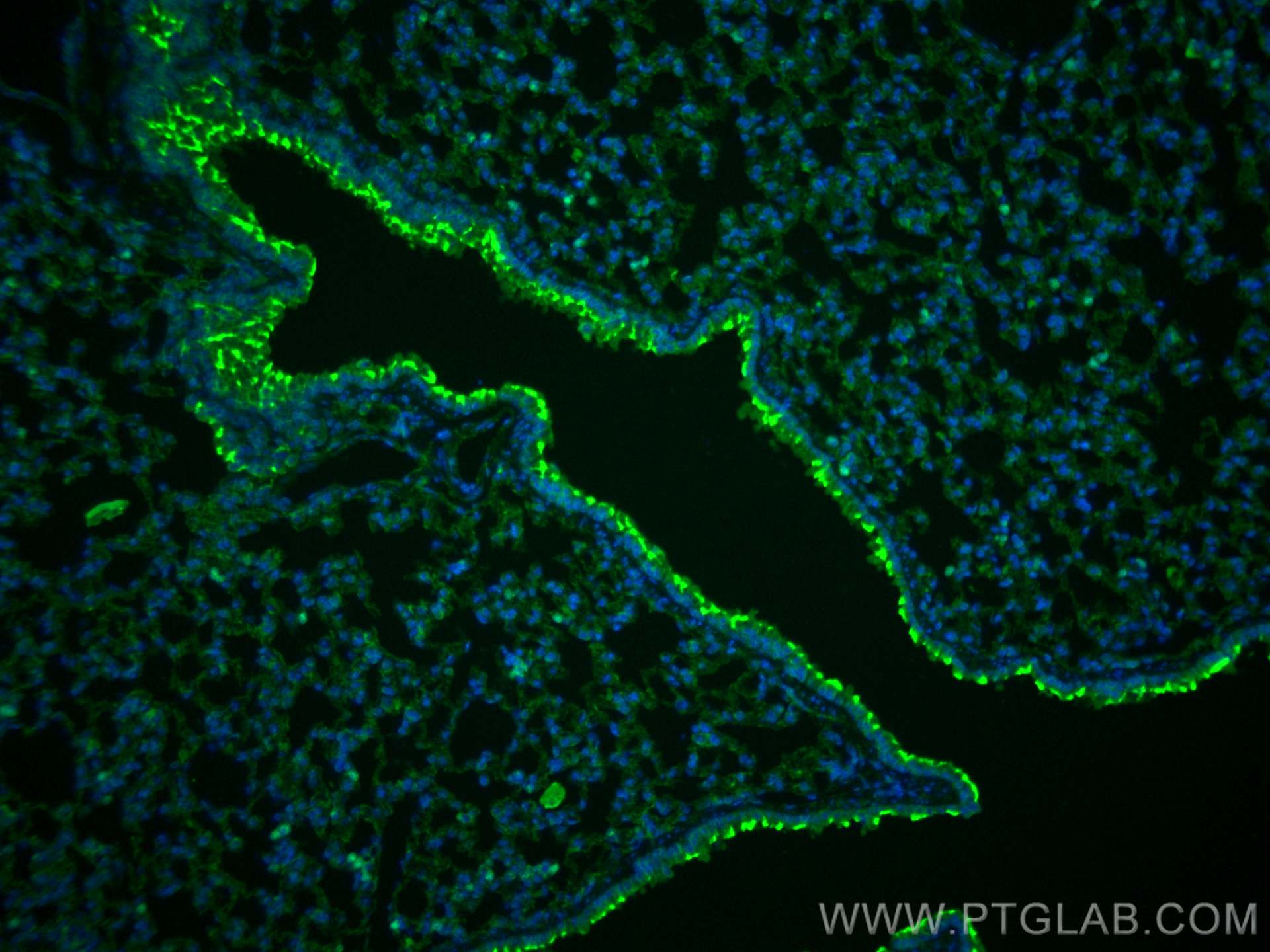Anticorps Polyclonal de lapin anti-SLC6A14
SLC6A14 Polyclonal Antibody for IHC, IF-P, ELISA
Hôte / Isotype
Lapin / IgG
Réactivité testée
Humain, souris
Applications
IHC, IF-P, ELISA
Conjugaison
Non conjugué
N° de cat : 18388-1-AP
Synonymes
Galerie de données de validation
Applications testées
| Résultats positifs en IHC | tissu pulmonaire de souris, il est suggéré de démasquer l'antigène avec un tampon de TE buffer pH 9.0; (*) À défaut, 'le démasquage de l'antigène peut être 'effectué avec un tampon citrate pH 6,0. |
| Résultats positifs en IF-P | tissu pulmonaire de souris, |
Dilution recommandée
| Application | Dilution |
|---|---|
| Immunohistochimie (IHC) | IHC : 1:50-1:500 |
| Immunofluorescence (IF)-P | IF-P : 1:50-1:500 |
| It is recommended that this reagent should be titrated in each testing system to obtain optimal results. | |
| Sample-dependent, check data in validation data gallery | |
Applications publiées
| IHC | See 1 publications below |
Informations sur le produit
18388-1-AP cible SLC6A14 dans les applications de IHC, IF-P, ELISA et montre une réactivité avec des échantillons Humain, souris
| Réactivité | Humain, souris |
| Réactivité citée | Humain |
| Hôte / Isotype | Lapin / IgG |
| Clonalité | Polyclonal |
| Type | Anticorps |
| Immunogène | SLC6A14 Protéine recombinante Ag12857 |
| Nom complet | solute carrier family 6 (amino acid transporter), member 14 |
| Masse moléculaire calculée | 642 aa, 72 kDa |
| Numéro d’acquisition GenBank | BC093710 |
| Symbole du gène | SLC6A14 |
| Identification du gène (NCBI) | 11254 |
| Conjugaison | Non conjugué |
| Forme | Liquide |
| Méthode de purification | Purification par affinité contre l'antigène |
| Tampon de stockage | PBS with 0.02% sodium azide and 50% glycerol |
| Conditions de stockage | Stocker à -20°C. Stable pendant un an après l'expédition. L'aliquotage n'est pas nécessaire pour le stockage à -20oC Les 20ul contiennent 0,1% de BSA. |
Informations générales
Sodium- and chloride-dependent neutral and basic amino acid transporter B(0+) (SLC6A14) is a member of the Na+- and Cl−-dependent neurotransmitter transporter family and transports both neutral and cationic amino acids in an Na+- and Cl−-dependent manner.
Protocole
| Product Specific Protocols | |
|---|---|
| IHC protocol for SLC6A14 antibody 18388-1-AP | Download protocol |
| IF protocol for SLC6A14 antibody 18388-1-AP | Download protocol |
| Standard Protocols | |
|---|---|
| Click here to view our Standard Protocols |




